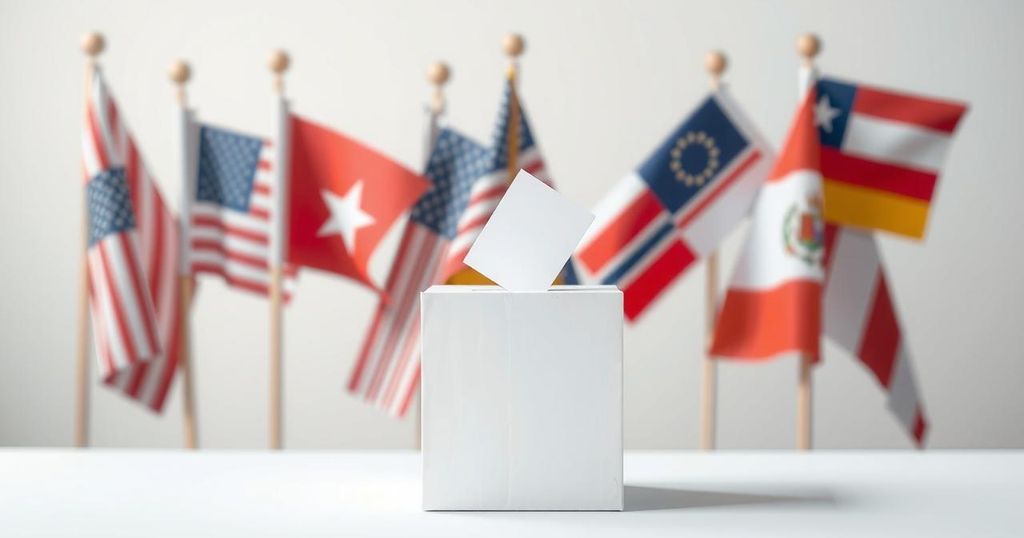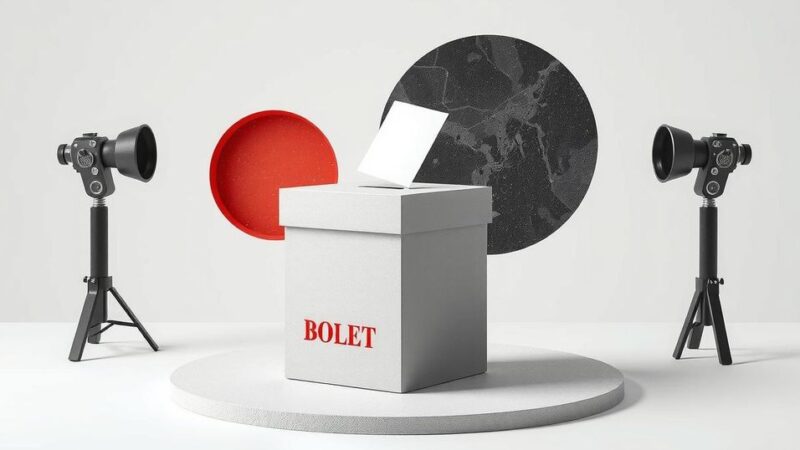Ecuador will hold a presidential runoff between conservative Daniel Noboa and leftist Luisa González in April 2024 due to the significant issue of crime driven by drug trafficking. Noboa received 44.31% of votes, and González received 43.83%, outpacing the other candidates. Citizens express concerns about crime and governance, indicating a pressing need for effective leadership.
Ecuador’s presidential election will proceed to a runoff on April 13, featuring conservative incumbent Daniel Noboa and leftist lawyer Luisa González. Crime remains a significant concern for voters, as drug trafficking from Colombia and Peru has led to unprecedented levels of violence, including homicide and extortion.
The National Electoral Council reports that with 92.1% of ballots counted, Noboa secured 44.31% of the votes, while González closely followed with 43.83%. They both outperformed the other 14 candidates, none of whom came close to their totals.
In the first round held on Sunday, no candidate achieved the necessary majority to win outright. Consequently, Noboa and González will compete again in April, with both candidates promising to address the rampant crime that has plagued the nation in recent years.
The rise in violence has been exacerbated by cocaine trafficking, creating a climate of fear for voters. Many have been directly affected by crime, impacting their decisions about whether to elect a new president or maintain Noboa in office for a full term.
Noboa, aged 37, previously succeeded in the October 2023 snap election, where he aims to serve a complete four-year term. His opponent, González, is noted for her ties to former President Rafael Correa, one of Ecuador’s most influential leaders of the past decade.
Mandatory voting laws saw a substantial turnout, with over 83% of eligible 13.7 million voters participating in this critical election. Despite recent reports indicating a decline in the homicide rate, overall crime rates remain high, leading to public discontent.
Marta Barres, a concerned citizen, expressed skepticism about Noboa’s ability to effect meaningful change, stating, “Can he change things in four more years? No. He hasn’t done anything.” Others, like retiree German Rizzo, recognized Noboa’s attempts to combat organized crime but raised concerns about their legality and effectiveness.
González’s political experience stems from her previous roles during Correa’s administration, establishing her as a formidable contender. Analysts describe the runoff results as a significant achievement for her party, suggesting that Noboa will need to adjust his campaign strategies to secure victory.
As citizens prepare for the upcoming runoff, sentiments among the populace reflect doubts about reducing crime and corruption effectively. Architecture student Keila Torres remarked, “If I could, I wouldn’t be here,” illustrating the pervasive sense of hopelessness regarding crime in Ecuador.
In summary, the Ecuadorian presidential election heads to a runoff between incumbent Daniel Noboa and challenger Luisa González, highlighting the critical issue of crime stemming from drug trafficking. Both candidates must address voters’ urgent concerns about safety and governance as they campaign for their next terms. Voter sentiment portrays a mixture of skepticism and demand for effective solutions to the ongoing violence in the country.
Original Source: www.foxnews.com






